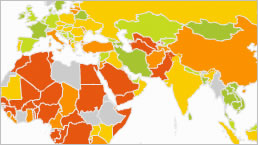Download File(s):
Small and medium-sized enterprises (SMEs) play a crucial role for employment, job creation, investment, innovation and economic growth around the world. They account for about 90% of businesses and more than 50% of employment worldwide, and are therefore crucial for the recovery of the world’s economy. Considering this important role, it is critical to ensure that viable SMEs around the world have access to the credit they need to expand.
Lack of a sound credit infrastructure is one of the major problems in the credit market for SMEs. Having a solid credit infrastructure will help countries reduce the information asymmetries and legal uncertainties that increase risk to lenders and constrain the supply of finance to SMEs.
By endorsing the G20 Action Plan on SME Financing in 2015, the G20 agreed, and encouraged non G20 countries to fully develop credit infrastructure for SMEs, improve SME financial capability through targeted learning and support interventions and enable competition through an enabling regulatory environment.
The G20 Action Plan on SME Financing provided a framework to (a) facilitate a dialogue between the relevant international fora and G20 work streams; (b) extend, as appropriate, successful G20 endorsed reforms and policy measures in G20 and willing non G20 countries in order to increase the availability of finance for SMEs to grow and create jobs, action by individual countries in these areas would take into account the status of current regulatory and jurisdictional arrangements, and other reforms which are underway; and (c) advance the agenda for SME finance across different G20 work streams with a focus on Low Income Developing Countries (LIDCs), including additional work from implementing partners and International Organizations (IOs).


